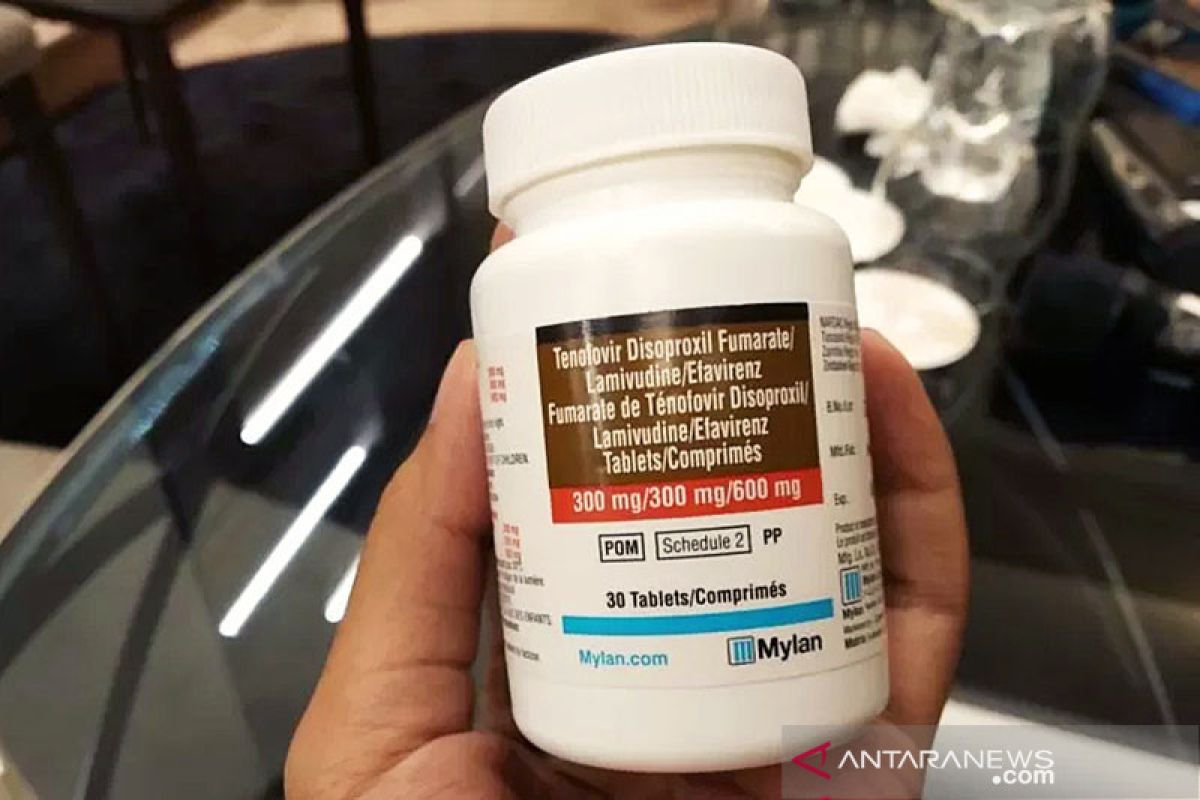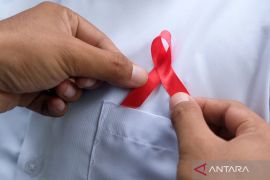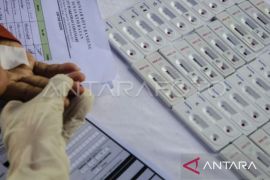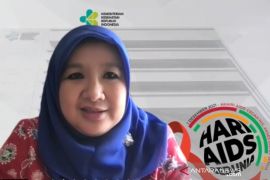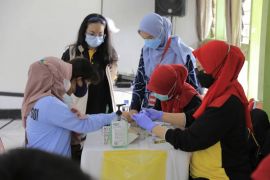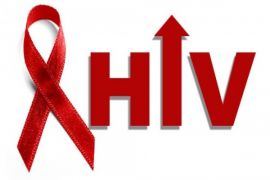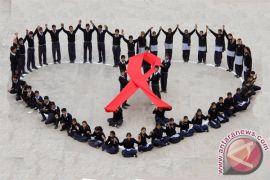ARV is not only a cure for ODHA, but also a (part of the) disease prevention effort for vulnerable groups.Jakarta (ANTARA) - The Indonesian Ministry of Health disclosed that it has increased the provision of drugs for people living with HIV/AIDS (ODHA) to adequately meet demand for three months amid the COVID-19 pandemic.
"We are easing the administration of antiretroviral drugs (ARV) more than a month, even up to three months, as long as the takers meet the criteria," director of prevention and control of vector and zoonotic diseases, Siti Nadia Tarmizi, said during a Kompas talk on 'Regional Strategies to Deal with AIDS during pandemic', monitored virtually from Jakarta on Thursday.
The drug provision policy is meant to minimize the transmission of COVID-19 among ODHAs in public places and healthcare facilities, she said.
According to Tarmizi, the number of ODHA in Indonesia was estimated at 543,100 in 2020. Of the total, 359 thousand were alive, she added.
"But only 142 thousand have gotten ARV from the 37 thousand test results," she noted.
The key populations targeted by the ministry are female sex workers, gays, and trans women, she said.
The Health Ministry has also detected ODHA based on the results of syphilis tests of 964 people. At least 480 of them have undergone treatment, Tarmizi informed.
Of the 520 thousand people tested, 1,595 have been pregnant women, she said. "There are 395 pregnant women who are getting treatment," she added.
Related news: Indonesia`s HIV/AIDS patients unlikely to get required medicines
"ARV is not only a cure for ODHA, but also a (part of the) disease prevention effort for vulnerable groups," Tarmizi said.
"In 2004, we started treating HIV patients in Indonesia. Initially, ARV drugs were only intended for people diagnosed at an advanced stage with underlying conditions," she explained.
Since 2004, treatment has been strengthened for people infected with HIV who have almost entered the AIDS stage. In 2011, the use of ARV was increased again by prescribing the drug for those who were at a higher risk of contracting AIDS, she added.
"In 2013, there were initiatives to utilize ARV more widely for certain groups, such as pregnant women. In 2018, we adopted early detection, and those with a positive result were immediately given the drug regardless of their population criteria," Tarmizi informed.
In 2020, the authorities set a target of having 90 percent of pregnant women to be well aware of their HIV/AIDS status, so 100-percent of newborns could be supervised for potential transmission from their mothers, she explained.
Related news: Handling of HIV/AIDS must be done comprehensively: social minister
Translator: Andi Firdaus, Kenzu T
Editor: Rahmad Nasution
Copyright © ANTARA 2021
